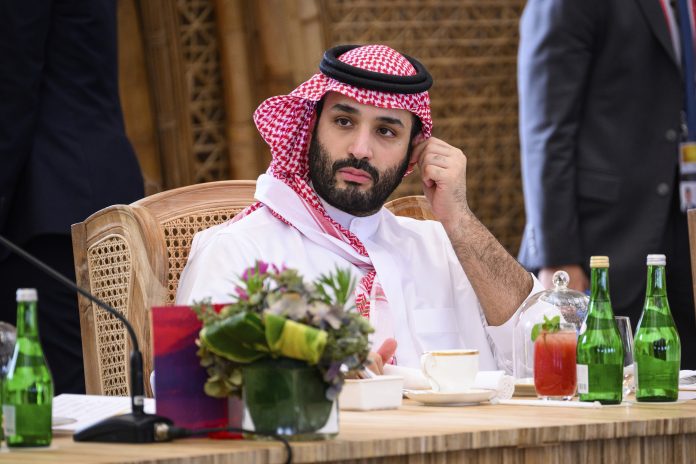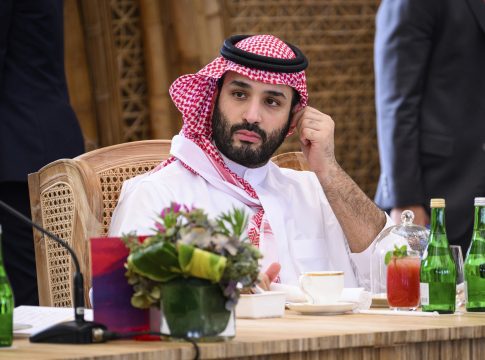Riyadh (Caasimada Online) – Saudi Arabia has appointed its first ambassador to the Palestinians in a gesture that underscores the shifting sands in Middle East diplomacy.
This move comes as the Gulf nation weighs the possibility of formalizing ties with Israel, a significant realignment in a region known for its complex geopolitical dynamics.
The Palestinian news agency, Wafa, reported on a ceremony held in Jordan where Majdi al-Khalidi, the diplomatic adviser to Palestinian President Mahmoud Abbas, received the credentials of Ambassador Nayef Al-Sudairi. Al-Sudairi has been designated as a non-resident envoy.
Al-Khalidi highlighted the significance of this development, stating it was “an important step that will contribute to further strengthening the strong brotherly relations that bind the two countries and the two brotherly peoples.”
Renowned Palestinian analyst, Talal Okal, sees this diplomatic appointment as an incremental move towards an official Saudi representation in the Israeli-occupied West Bank.
He elaborated, “It’s a clear message from Saudi Arabia about its commitment to the rights of the Palestinians in a fully sovereign state.”
Rising Palestinian concerns
The Palestinian Foreign Minister, Riyad al-Maliki, expressed last week that the Western-backed Palestinian Authority seeks to liaise with Saudi Arabia.
Their main concern centers around the potential implications of Riyadh normalizing its relations with Israel.
This apprehension stems from worries that such a realignment may diminish support for the Palestinian cause among Arab nations and consequently jeopardize the vision of an independent Palestinian state.
The larger geopolitical context
Saudi Arabia’s contemplation of closer ties with Israel isn’t happening in isolation.
The kingdom has tacitly accepted the Abraham Accords, which saw neighboring Gulf nations Bahrain and the United Arab Emirates normalize their relations with Israel.
On potential concessions to the Palestinians in the event of a Saudi-Israeli accord, Israeli Prime Minister Benjamin Netanyahu mentioned in a recent NBC interview, “The Palestinians should have all the power to govern themselves and none of the powers to threaten us.”
Yet, voices within his right-leaning coalition firmly oppose any such concessions.
Moreover, while the US is keen on brokering a potentially historic deal between Saudi Arabia and Israel, officials from all three nations have reiterated that reaching such an agreement would be challenging.
Several thorny issues remain, including increased violence in the West Bank and Saudi Arabia’s interest in developing civilian nuclear power.
In summary, appointing a Saudi ambassador to the Palestinians might be an initial step. However, the road to diplomatic reshuffling in the Middle East remains fraught with complexities and challenges.
The world watches closely as each move could redefine regional alliances and power dynamics for years.



